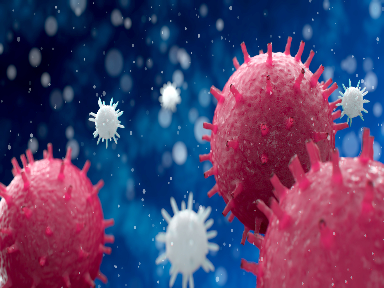pharmatimesJune 28, 2021
Tag: blood test , cancer screening
Researchers have developed a blood test able detect more than 50 types of cancer that is accurate enough to be used nationally as a multi-cancer screening test in those at higher risk of the disease, including those aged over 50 with no symptoms.
The test involves taking a sample of blood from each patient and analysing it for DNA, known as cell-free DNA (cfDNA), shed by tumours (and other cells) into the blood. Genomic sequencing is used to detect chemical changes to the DNA (methylation) that control gene expression, and a classifier developed with machine learning (artificial intelligence) uses these results to detect abnormal methylation patterns that indicate the presence of cancer.
In addition, the AI classifier can also predict the location of the cancer in the body, with results available within ten business days from the time the sample reaches the lab.
The third and final sub-study of the Circulating Cell-free Genome Atlas (CCGA) study, published in the Annals of Oncology, investigated the performance of the test in 2,823 people already diagnosed with cancer and 1,254 people without cancer.

The findings show that the test was able to detect cancer signals from more than 50 different types of cancer across all four cancer stages (I, II, III, IV), correctly identifying when cancer was present in 51.5% of cases. The test’s specificity was 99.5%, thus showing that it wrongly detected cancer in just 0.5% of cases.
According to the data, sensitivity of the test was 67.6% overall across stages I-III in 12 pre-specified cancers that account for two-thirds of cancer deaths in the US annually (anal, bladder, bowel, oesophageal, stomach, head and neck, liver and bile duct, lung, ovarian and pancreatic cancers, lymphoma and cancers of white blood cells such as multiple myeloma), and 40.7% overall in more than 50 cancers.
For all cancers, detection improved with each later cancer stage with a sensitivity rate of 16.8% at the early stage I, 40.4% at stage II, 77% at stage III and 90.1% at stage IV.
Research also showed that sensitivity varied by type of cancer; in solid tumours that do not have any screening options – such as oesophageal, liver and pancreatic cancers – overall sensitivity of the test was twice that for solid tumours that do have screening options, such as breast, bowel, cervical and prostate cancers: 65.6% compared to 33.7%. Overall sensitivity in cancers of the blood, such as lymphoma and myeloma, was 55.1%.
The test correctly also identified the tissue in which the cancer was located in the body in 88.7% of cases, the researchers said.
“These data add to a growing body of literature that supports the use of next-generation sequencing for the detection of cell-free DNA in blood samples as a tool for earlier detection of common cancers that account for a significant number of deaths and other health problems worldwide,” said first author of the paper, Dr Eric Klein, chairman of the Glickman Urological and Kidney Institute, Cleveland Clinic, Cleveland, US.
"In addition, a screening test that requires only a simple blood draw could provide an option for communities that have poor access to medical facilities. I’m excited about the potential impact this approach will have on public health.”


Contact Us
Tel: (+86) 400 610 1188
WhatsApp/Telegram/Wechat: +86 13621645194
Follow Us:




 Pharma Sources Insight January 2025
Pharma Sources Insight January 2025


